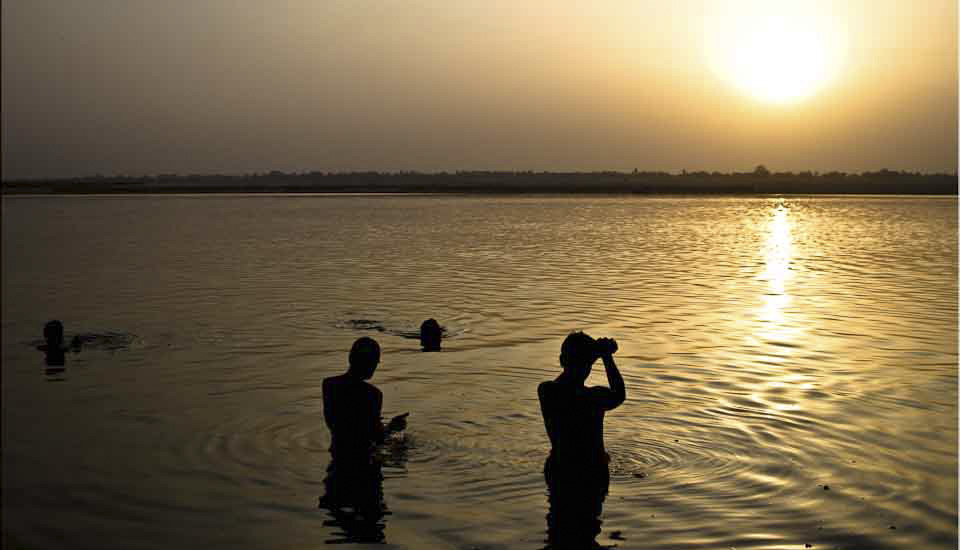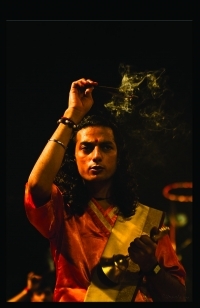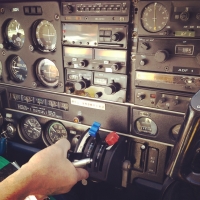.jpg)
Exploring the Cannery
Even in the rain, the North Pacific Cannery on the Skeena River in British Columbia, Canada, is a charming place to explore.
It was raining.
But, it was early June – so still part of a wet spring – and I was only a 15 minute drive away from Prince Rupert, the rainiest city in Canada.
So, wet weather was to be expected.
I was staying in Prince Rupert while on a road trip around British Columbia (BC). The day before, I had treated myself to a boat trip into grizzly bear territory (see: Khutzeymateen Provincial Park). That evening, I had a booking for the evening ferry to Haida Gwaii (Watch this space!), so I needed a short, local excursion.
The North Pacific Cannery museum fit the bill perfectly!
Originally built in 1889, the site was restored after the North Coast Marine Museum Society was formed in 1979. Today it is the oldest surviving salmon cannery in BC and a designated national historic site.
Even today, this site feels remote. Back when the cannery was opened, it must have felt even more so! But, the huge seasonal salmon runs through these west-coast waters were ready to be tapped. In the days before refrigerated boats, the harvest had to be quickly processed near to the actual fishing grounds, and a number of self-contained cannery-communities – accessible only by rail or water – were built to house the workers required.
The North Pacific Cannery was the longest running of these operations, canning salmon through to 1968. Over time, it witnessed a lot of changes in the processing methodology. In the days before mechanisation, everything was done by hand: even the cans were made by Chinese tinsmiths! Some of the tools and machines from across the years are on display in the main cannery building. The administration offices and some of the residences are also open to wander through.
The catchphrase of the Museum is “History with a View”, and the site is indeed in the most magnificent setting, with clear waters and dramatic mountains all around. The high point for me, however, was Mama’s Mess House Cafe where I enjoyed a delicious lunch of historically inspired cuisine.
Join me for a rainy walk through some unique and original BC architecture:
.jpg)
The North Pacific Cannery National Historic Site
From the parking lot, I already get a taste of the historical wooden buildings rising out of the waters of the Skeena River. Access to railways in the early 1900s changed the fortunes of many of these early enterprises.
.jpg)
Dock Ruins
I love the tumble-down nature of a lot of the surrounds here; I much prefer this to a site that is overly-renovated, to the point where you have no sense of the age!

A Lunch in the Mess
Corbin’s salmon chowder and Al’s butter biscuits made for a wonderful lunch and respite from the rain.

Al and Corbin
The two young cooks agreed to pose for me before closing up shop.

The Skeena River from the North Pacific Cannery

Cannery Buildings
The red shingle roofs make a nice contrast to the expanse of green forest.

Window in a Staff Cottage
The cosy worker’s cottages were segregated by ethnic group – as were the jobs.

A Living Room
Much of the First Nation- and Chinese-worker housing was removed when the Grand Trunk Pacific Railway came through. Most of the Japanese-occupied buildings have been lost through obsolescence and neglect …

Still Life Found : a Tea Set and a Hurricane Lamp
… but a few sample items have been put on display for illustrative purposes.

Bath House
Japanese workers insisted on something resembling a traditional bath house.

An Old Kitchen

The House Next Door
Wood is plentiful in these parts; flat ground is not so easy to come by. Houses on pylons over the water are not uncommon.

Wet Wooden Walkway
The advantage of the rain (!!) is that it makes for wonderful reflections and shine. (iPhone12Pro)

History Lessons
The site saw a lot of changes over its almost 90 years of continuous salmon production and fish processing.

“I See People!”

In the Rain

Textures in the Rust
Most things are labeled with their purpose; I’m more interested in the patterns and shapes!

Cannery Machinery
Over time, the process of canning salmon became much more mechanised.

Conveyer Belt
This mechanisation lead, of course, to a loss of jobs.

Wheels and Gears
I can’t remember what this is for – time travel, perhaps?

A Wet Wharf

More Lines and Angles
Not all of the buildings are open to the public, but it was still lovely wandering across the wooden walkways.

Pylons in the Rain
The walkways lead off in all directions.

Barn Swallow – Hirundo Rustica
A little swallow was the only wildlife I saw that day!
It really was a lovely way to spend a few hours, and revisit some of British Columbia’s rich historical heritage.
The lunch was a bonus!

Until next time,
Happy Rambling!
09June2022





























.png)

